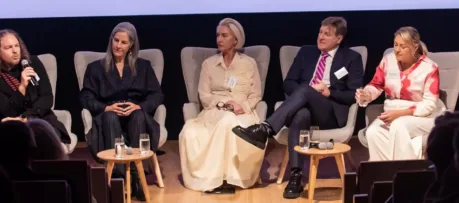In Australia there’s an ongoing misconception that you’ll be entitled to 50% of your shared property and assets when you separate or divorce – regardless of the circumstances. But that’s simply not true.
By Justin Dowd, Principal Lawyer at Watts McCray.
Although we have no fault divorce here in Australia, that doesn’t mean that property will be split right down the middle. In fact, the court will take a number of factors into consideration when deciding how to split property. And while a 50/50 split is always a possibility, 70/30 divorce settlements in Australia are possible as well, as is any other type of split.
What is a 70/30 divorce settlement or property settlement?
A 70/30 divorce or property settlement simply refers to the situation where one party gets 70% of the property pool and the other gets 30% of the property pool.
Many people believe that its very common for the wife – for example – to get nearly full-time custody of the children, and because of that, a much great proportion of the property. Others believe that the full-time worker may be the one who gets the larger proportion of the property, with less importance given to a stay-at-home parent, for example.
In fact, such a large distribution to just one party (70%) is not the usual outcome at all, regardless of the situation. And each split will depend on the balance of factors in your individual circumstances.
What is considered property?
The ‘property pool’ is all the assets and liabilities of the parties in the relationship. This can sometimes even include property – such as an inheritance – that comes into the relationship post separation.
How does the court decide the split ratio?
When it comes to deciding how to split the property pool between the parties, the court will use a four-step process.
1. Determining the property pool
First the court determines what should be included in the property pool. To do this they’ll identify and value all the assets and financial resources that the couple currently owns. They’ll also look at any debts or assets acquired before the relationship began and after separation.
The assets can include:
- Real estate, such as the family home and any investment properties
- Vehicles
- Cash
- Household items, such as furniture and appliances
- Shares and investments
- Superannuation
They’ll also include debts and financial responsibilities such as:
- Loans, such as home, automobile and even working capital
- Credit card debts
- Afterpay and other retail debts
- Court ordered obligations
- Ongoing financial responsibilities
Finally, the court will consider other financial resources of the parties. These could be things like:
- Inheritance
- Interests in a business venture
- Interests in a trust
It’s important to note that the court will consider the value of assets and debts as at the date of the hearing or the date of the agreement being reached, not at the date of separation.
2. Assess the contributions
Once the court determines the property pool, they’ll then assess each party’s individual contributions to that pool. This includes both financial contributions – earnings, gifts and inheritances – and non-financial contributions – childcare, home maintenance or even family loan guarantees, for example.
The court doesn’t consider financial contributions to be more important than non-financial contributions. In fact, they often balance these equally, even if objectively one may seem to outweigh the other. Since the parties were satisfied with the arrangement during the relationship, the court can assume that they believed the contributions to be equal and the court takes the same approach.
3. Special factors
Next, the court will consider any factors that might impact a party’s ability to earn an income in the future. We often call these section 75(2) factors because they’re set out in section 75, subsection 2 of the Family Act 1975 (Cth).
Some of the factors that the court might consider are:
- care of children
- education
- age
- state of health
- income-earning capacity
- financial resources
- financial circumstances generally
The court will use these factors to adjust the split. For example, if one party will have the primary care of the children after the separation or divorce, the court may adjust the final split in their favour.
4. Just and equitable split
Finally, the court will put together a just and equitable split of the property pool. This considers the individual contributions and the section 75(2) factors. But the court can also consider any other information that they consider to be relevant.
Once the court has determined the percentage split – whether that’s a 50/50 or 70/30 divorce settlement or property settlement, or something else entirely – they’ll also consider the best way to achieve that split. This might require that some property is sold (for example, the family home or vehicles) in order to split the value of the property equitably.
Expert advice on 70/30 divorce settlements in Australia
If you’re in the process of separating or divorcing and have any questions about 70/30 divorce settlements in Australia, get in touch with our expert team. We’re on hand to help you manage the process and any other aspect of family or relationship law!





